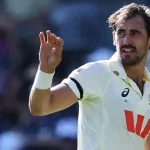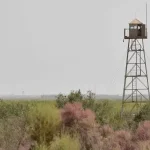Writing this is very painful because the country was shocked to learn of the premature death of Arshad Sharif, a renowned investigative journalist from Pakistan, who was shot on Sunday night in Kenya. The details of the assassination are still being investigated as the case develops over the coming days. The Kenyan police claimed that there had been a shooting incident, but it later proved to be a case of “mistaken identity,” which raises many doubts about the veracity of the police’s official account. As a result of Sharif and his family’s vociferous criticism of the current administration and the nation’s military establishment, they have been under increasing pressure and have received several serious threats to their lives. He decided to leave Pakistan earlier this year as a result of exercising his right to free speech after sedition accusations were filed against him.
Respect for journalists and their right to free speech has drastically declined over the past several years to a new low. They are the target of an ongoing campaign because of the crucial role they play in educating our society. Around the world, journalists are prohibited from speaking out about uncomfortable realities and holding leaders responsible for their deeds in front of the public, drawing aggressive attempts from governments to discredit their work and occasionally silencing them for life. Brave and outspoken journalists like Sharif, who ask hard questions of the political elites at risk, live in constant danger of persecution and life threats. In Pakistan, where I have personally witnessed and observed how excellent journalistic pieces are deleted and authors are cautioned not to write on themes that conflict with businesses’ interests, statistics, and reports on press freedom reflect a sobering reality of content censorship.
Sami Ibrahim, another senior anchor of Pakistan’s largest media conglomerate, was recently attacked by unidentified assailants in front of his workplace. This is only the latest in a string of attacks on journalists who criticise the government. Since I’ve seen people punished for speaking plain truths, imprisoned or harassed for publicly challenging authorities, and finally imprisoned for doing so, there is no longer any incentive for me to pursue a career in journalism. I am aware of this reality because it has happened to my co-workers.
The press serves as a check on our government and is essential to the maintenance of a healthy democracy. By giving us the knowledge, we need to decide whether or not to support a candidate for office, it enables the people to choose the best leader for the nation. But after Jamal Khashoggi was killed and mutilated by unidentified assailants in 2018, the pressure and threats that journalists face globally are becoming more serious. The same year that Maksim Borodin, a Russian journalist, revealed the Kremlin’s covert operation in Syria, he also committed suicide by jumping off the balcony of his residence. Most recently, in May, renowned Al Jazeera journalist Shireen Abu Akleh was slain by an Israeli soldier when she was documenting Israeli military raids in the Palestinian-occupied West Bank.
I think that the hard work of journalism is in grave danger, particularly in Third World nations where freedom of expression is viewed not as a privilege but as a vice. We are also aware of the significant barriers to dissent suffered by leading journalists for a long time, including intimidation and arbitrary detention for criticising state institutions, notably Imran Riaz Khan, Sabir Shakir, and Arshad Sharif.
We all know of a few instances of violence and intimidation, including the ones I’ve mentioned today. There are numerous instances of attacks on journalists every day, many of which never make the news headlines and take place in various locations throughout the world. The threat of retaliation hangs over journalists in many nations. Because of this, rumours are ignored and unlawful activities are covered up. It is dangerous to do journalism at this time and to do so in a nation where it is most needed.
“The free press is invaluable, without debate, without criticism, because no administration, no country, and no republic can survive,” declared John F. Kennedy. As a result, in the face of increasing pressure, a free press has the authority to enlighten the public and to continue to pursue the truth without fear or favour.








